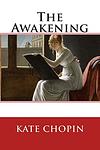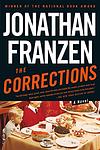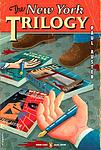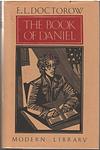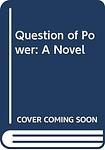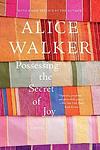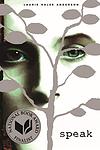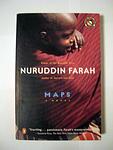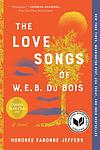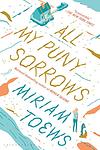The Greatest "Social & Cultural Fiction, Psychology & Mental Health" Books of All Time
Click to learn how this list is calculated.
This list represents a comprehensive and trusted collection of the greatest books. Developed through a specialized algorithm, it brings together 300 'best of' book lists to form a definitive guide to the world's most acclaimed books. For those interested in how these books are chosen, additional details can be found on the rankings page.
Genres
Social & Cultural Fiction is a literary category that encompasses novels and stories that delve into the complexities of society and culture, exploring themes such as class, race, gender, and identity within specific social contexts. These narratives often provide a lens through which readers can examine the intricacies of human relationships and the impact of cultural norms and societal structures on individuals and communities. By offering a fictional yet reflective portrayal of real-world social dynamics, this genre invites readers to gain a deeper understanding of the diverse experiences that shape our world. Authors in this category frequently use their characters and settings to comment on contemporary issues, challenge prevailing ideologies, and provoke thought about the possibility of social change, making Social & Cultural Fiction a powerful tool for empathy and a mirror for the ever-evolving human condition.
The "Psychology & Mental Health" category encompasses a diverse range of books that delve into the intricate workings of the human mind, behavior, and the various factors influencing mental well-being. This genre offers readers insights from the fields of clinical psychology, psychiatry, cognitive science, and neuroscience, among others. It includes texts on psychological theories, research findings, therapeutic techniques, and personal mental health journeys. Whether it's exploring the depths of human consciousness, understanding the impact of mental disorders, or learning strategies for improving emotional health, this category provides valuable resources for professionals, students, and anyone interested in the complexities of the psyche and the pursuit of mental wellness.
Countries
Date Range
Reading Statistics
Click the button below to see how many of these books you've read!
Download
If you're interested in downloading this list as a CSV file for use in a spreadsheet application, you can easily do so by clicking the button below. Please note that to ensure a manageable file size and faster download, the CSV will include details for only the first 500 books.
Download-
1. Catch-22 by Joseph Heller
The book is a satirical critique of military bureaucracy and the illogical nature of war, set during World War II. The story follows a U.S. Army Air Forces B-25 bombardier stationed in Italy, who is trying to maintain his sanity while fulfilling his service requirements so that he can go home. The novel explores the absurdity of war and military life through the experiences of the protagonist, who discovers that a bureaucratic rule, the "Catch-22", makes it impossible for him to escape his dangerous situation. The more he tries to avoid his military assignments, the deeper he gets sucked into the irrational world of military rule.
-
2. The Brothers Karamazov by Fyodor Dostoevsky
This classic novel explores the complex, passionate, and troubled relationship between four brothers and their father in 19th century Russia. The narrative delves into the themes of faith, doubt, morality, and redemption, as each brother grapples with personal dilemmas and family conflicts. The story culminates in a dramatic trial following a murder, which serves as a microcosm of the moral and philosophical struggles faced by each character, and by extension, humanity itself.
-
3. Their Eyes Were Watching God by Zora Neale Hurston
This novel follows the life of Janie Crawford, a young African-American woman, in the early 20th century. She embarks on a journey through three marriages and self-discovery while challenging the societal norms of her time. The narrative explores her struggle for personal freedom, fulfillment, and identity against the backdrop of racism and gender expectations, ultimately emphasizing the importance of independence and personal growth.
-
4. The Awakening by Kate Chopin
"The Awakening" is a novel set in the late 19th century New Orleans, which explores the life of a young woman trapped in societal and marital expectations. She embarks on a journey of self-discovery and independence, defying the norms of her time. The protagonist challenges the traditional roles of women as she seeks personal fulfillment, experiences sexual awakening, and struggles with her desires and responsibilities. The book is a critique of the repressive social norms, particularly regarding women and marriage, of the Victorian era.
-
5. The Corrections by Jonathan Franzen
The novel revolves around the lives of the Lambert family, an old-fashioned midwestern couple and their three adult children. The parents, Alfred and Enid, are dealing with Alfred's Parkinson's disease and their own marital problems, while their children are each facing their own personal and professional crises. The narrative explores the themes of family dynamics, societal expectations, and the struggles of modern life. The story climaxes with the family's last Christmas together at their childhood home.
-
6. The Mayor of Casterbridge by Thomas Hardy
The Mayor of Casterbridge is a tragic novel set in the fictional town of Casterbridge, based on Dorchester in the English county of Dorset. The story follows the life of Michael Henchard, a skilled hay-trusser who, in a fit of drunken anger, sells his wife and daughter at a fair. When he sobers up, he is filled with regret and swears off alcohol for 21 years. He works hard and eventually becomes a successful businessman and the mayor of Casterbridge. However, his past returns to haunt him when his wife and daughter come back into his life, leading to a series of events that result in his downfall.
-
7. Giovanni's Room by James Baldwin
The novel explores themes of identity, sexuality, and societal norms in mid-20th century Paris. The protagonist, an American man, grapples with his homosexual identity while engaged to a woman. His life takes a turn when he becomes involved with an Italian bartender, leading to a tumultuous relationship filled with passion, guilt, and self-loathing. The story is a poignant examination of the human struggle for acceptance and the destructive consequences of denying one's true self.
-
8. The Adventures of Oliver Twist by Charles Dickens
This classic novel follows the life of a young orphan named Oliver Twist, who endures a miserable existence in a workhouse and then is placed with an undertaker. He escapes and travels to London where he meets the Artful Dodger, a member of a gang of juvenile pickpockets led by the elderly criminal, Fagin. Despite numerous adversities, Oliver remains pure at heart and is eventually saved from a life of crime, revealing his true identity and claiming his rightful inheritance.
-
9. The Rainbow by D. H. Lawrence
The novel explores the lives of three generations of a farming family, the Brangwens, living in rural England in the late 19th and early 20th century. The narrative primarily focuses on the sexual and emotional maturation of Ursula Brangwen, a young woman who rejects traditional societal norms in her quest for spiritual fulfillment and personal independence. The book is known for its vivid depiction of the English countryside and its frank portrayal of sexual desire.
-
10. The Fountainhead by Ayn Rand
The novel presents the story of an innovative architect, who values his individualism and creativity above all else. He refuses to conform to traditional architectural designs, which leads to his struggle against a system that rewards mediocrity and conformity. Despite numerous setbacks and rejections, he remains true to his unique vision and principles. The book explores themes of objectivism, individualism, and capitalism, challenging the reader to consider the value of standing alone against the collective.
-
11. Passing by Nella Larsen
"Passing" is a novel about two light-skinned African-American women, Irene Redfield and Clare Kendry, who can 'pass' as white. Set during the Harlem Renaissance, the story explores the intricacies and challenges of racial identity in 1920s America. Clare, who has chosen to live as a white woman, married to a racist who is unaware of her true heritage, risks everything when she reconnects with her childhood friend Irene, causing both women to grapple with their identities and desires, leading to tragic consequences.
-
12. The New York Trilogy by Paul Auster
"The New York Trilogy" is a collection of three detective stories that explore the nature of identity and the search for meaning. The stories are set in New York City and feature various characters, including a detective, a writer, and a professor, who are all engaged in their own personal quests. These quests often involve elements of mystery, existentialism, and introspection, and the stories are interconnected in various ways, creating a complex and thought-provoking narrative.
-
13. The Book of Daniel by E. L. Doctorow
"The Book of Daniel" is a semi-fictional novel that explores the lives of the Isaacson family, specifically focusing on the children, Daniel and Susan, after their parents, accused of being Communists, are executed. The narrative is a combination of historical fiction and a political commentary, providing a deep exploration of the Red Scare in the United States during the Cold War era. The novel is a critical examination of social, political, and familial dynamics in a time of national fear and paranoia.
-
14. The Go-Between by L. P. Hartley
Set in the summer of 1900, the novel follows a young boy who visits a friend's family estate and becomes an unwitting messenger in an illicit affair between his friend's older sister and a local farmer. As the boy navigates the complexities of the adult world and the rigid class system of the time, he experiences a loss of innocence that has lasting effects on his life. The narrative explores themes of nostalgia, memory, and the corrupting power of class and wealth.
-
15. The Underdogs by Mariano Azuela
"The Underdogs" is a novel set during the Mexican Revolution, depicting the conflict from the perspective of the peasants who fought in it. The story follows the journey of a poor, illiterate Indian named Demetrio Macias, who becomes a reluctant leader in the rebellion against the federal government. The narrative explores the brutality and chaos of war, the corruption of power, and the often futile nature of rebellion, painting a grim picture of the human cost of revolution.
-
16. A Question of Power by Bessie Head
"A Question of Power" explores the life of Elizabeth, a mixed-race South African woman who moves to a village in Botswana to escape the apartheid regime of her home country. The novel delves into her struggle with mental illness, as she experiences vivid, often terrifying hallucinations. These episodes are deeply symbolic, reflecting her internal battles with power, gender, race, and colonialism. The narrative provides a profound examination of the human psyche and the impact of social and political oppression on mental health.
-
17. Doña Bárbara by Rómulo Gallegos
Set in the Venezuelan llano, the book tells the story of an ongoing struggle between two powerful landowners. One is Doña Bárbara, a ruthless and cunning woman who has used her cunning and seductive prowess to amass a large amount of land. The other is Santos Luzardo, an educated city-dweller who returns to the plains to reclaim his family's property. The novel explores themes of civilization versus barbarism, the struggle for land, and the magical realism of the South American landscape.
-
18. Possessing the Secret of Joy by Alice Walker
The novel explores the life of Tashi, an African woman who voluntarily undergoes the traditional ritual of female circumcision, a decision that haunts her as she moves to the United States, marries, and bears children. The emotional and physical repercussions of this act, along with her struggle to understand and reconcile with her cultural heritage, form the heart of the story. The narrative presents a powerful critique of the practice, highlighting its traumatic consequences on women's lives while also exploring themes of cultural identity, tradition, and personal freedom.
-
19. Speak by Laurie Halse Anderson
A high school freshman becomes a social outcast after calling the police to break up a summer party and refuses to explain why. As she navigates the challenges of high school, she struggles with a traumatic event from the party that has left her feeling silenced. Throughout the year, she slowly regains her voice and confronts her attacker, ultimately revealing the truth about what happened that night.
-
20. Walden Two by B. F. Skinner
"Walden Two" is a utopian novel that presents an experimental community where happiness, productivity, and quality of life are the main goals. The community is guided by the principles of behavioral science, and it emphasizes the importance of cultural and environmental conditioning in shaping human behavior. The book explores the idea of an ideal society, free from the problems of modern civilization, through the eyes of a professor and his two ex-students who visit the community.
-
21. The Love of a Good Woman by Alice Munro
"The Love of a Good Woman" is a collection of eight short stories, each delving into the complex nature of relationships, particularly focusing on women. The narratives explore various themes such as love, betrayal, death, and the often overlooked intricacies of everyday life. Set in small-town Canada, the stories are filled with characters grappling with their desires, secrets, and the unexpected turns of life, offering a profound and nuanced exploration of human behavior and emotions.
-
22. Maps by Nuruddin Farah
"Maps" by Nuruddin Farah is a compelling novel that delves into the complex themes of identity, exile, and the search for belonging. Set in Somalia during a time of political turmoil, the story follows Askar, a young boy who is caught between conflicting cultural and political forces. As he grows older, Askar becomes increasingly aware of the divisions within his society and struggles to navigate the shifting landscapes of his own identity. Through vivid storytelling and rich character development, Farah explores the power of maps as both physical representations of territory and metaphorical symbols of personal and national boundaries.
-
23. Born Confused by Tanuja Desai Hidier
The novel tells the story of an Indian-American teenage girl who struggles with her cultural identity. She feels caught between the traditional Indian values of her parents and the mainstream American culture she experiences every day. As she navigates high school, friendships, and first love, she begins to rediscover her heritage and embrace her Indian-American identity.
-
24. The Love Songs Of W.E.B. Dubois by Honorée Fanonne Jeffers
"The Love Songs of W.E.B. Du Bois" is a multi-generational family saga that explores the complexities of race, identity, and history through the experiences of Ailey Pearl Garfield. As a young woman, Ailey is haunted by the legacy of her family's slave-owning past and struggles to reconcile her own sense of self with the expectations of her community. Along the way, she uncovers the stories of her ancestors, including the famed civil rights leader W.E.B. Du Bois, and grapples with the enduring impact of racism in America. With lyrical prose and a rich cast of characters, Honoree Fanonne Jeffers' novel is a powerful meditation on the enduring power of love and the search for belonging in a divided world.
-
25. All My Puny Sorrows by Miriam Toews
All My Puny Sorrows is a poignant exploration of the complex relationship between two sisters, one a successful concert pianist battling severe depression and the other a struggling writer trying to support her. The narrative delves into themes of mental illness, suicide, love, and the power of familial bonds. It grapples with the moral and ethical questions surrounding assisted suicide, the struggle to understand a loved one's pain, and the lengths to which one might go to help them find peace.
Reading Statistics
Click the button below to see how many of these books you've read!
Download
If you're interested in downloading this list as a CSV file for use in a spreadsheet application, you can easily do so by clicking the button below. Please note that to ensure a manageable file size and faster download, the CSV will include details for only the first 500 books.
Download


